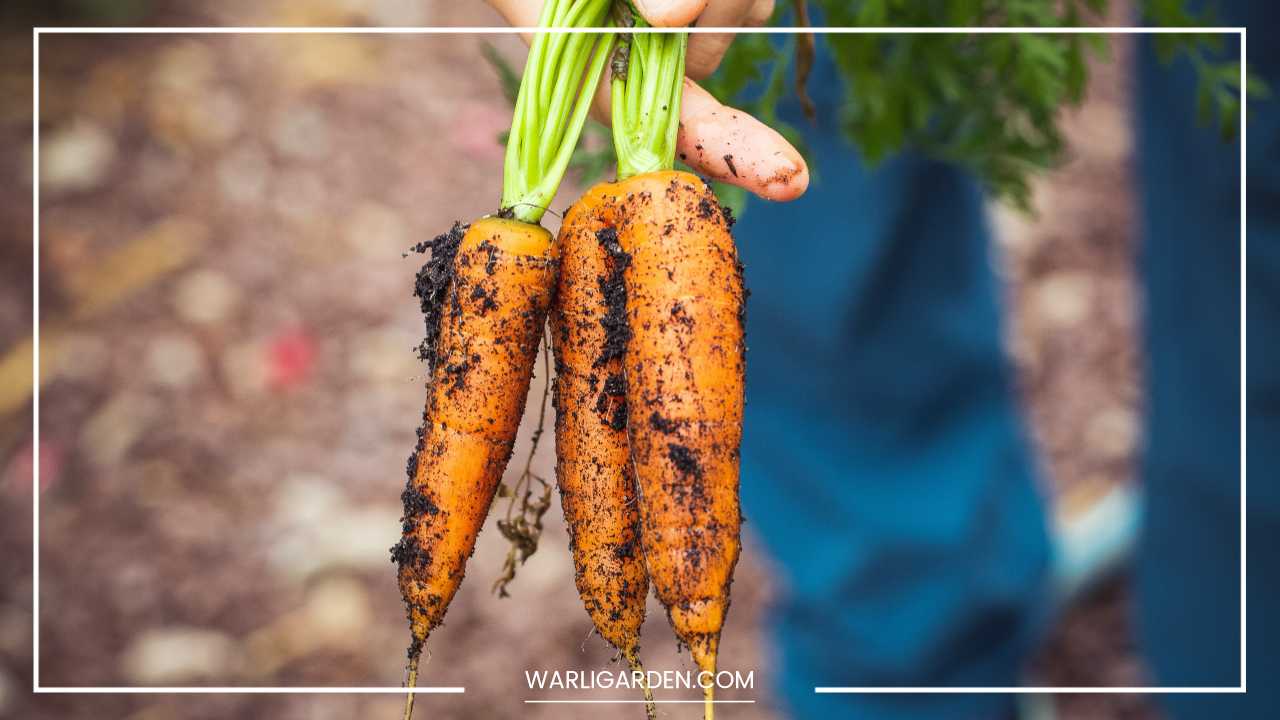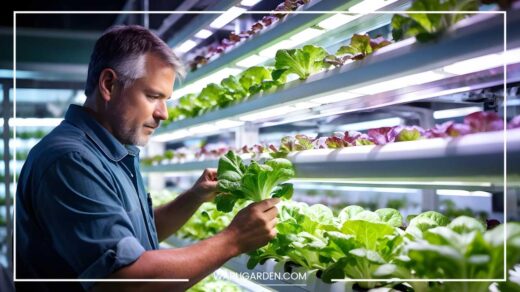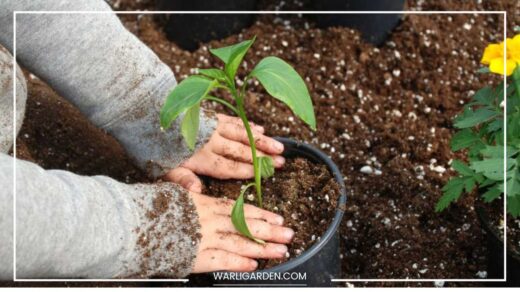What is Organic Farming?

Organic Farming
What is Organic Farming? A Deep Dive into Sustainable
For many, the term “organic” conjures up images of fresh, healthy produce at the farmer’s market. But organic farming goes beyond just the end product.
It’s a holistic approach to agriculture that prioritizes environmental health, biodiversity, and long-term sustainability.
This comprehensive guide delves into the world of organic farming, exploring its core principles, methods, benefits, challenges, and the exciting future that lies ahead.
Understanding the Core Principles of Organic Farming
Organic farming is an agricultural system built on the foundation of promoting ecological balance. Here are the key principles that differentiate it from conventional farming practices:
- Emphasis on Organic Inputs: Synthetic fertilizers and pesticides are strictly prohibited in organic farming. Instead, farmers rely on natural fertilizers like compost, manure, and green manure (plants grown specifically to be tilled back into the soil) to nourish their crops. This focus on organic matter fosters a healthy soil ecosystem teeming with beneficial microbes that contribute to plant growth and nutrient cycling.
- Promoting Soil Health: Soil is the lifeblood of agriculture, and organic practices nurture it. Crop rotation, cover cropping, and composting all contribute to a thriving soil ecosystem. Crop rotation prevents nutrient depletion and pest and disease buildup by planting different crops in sequence. Cover cropping protects the soil from erosion during fallow periods, suppresses weeds, and fixes nitrogen from the air. Composting organic waste like food scraps, yard trimmings, and animal manure creates nutrient-rich fertilizer, reducing reliance on external inputs. Healthy soil translates to healthier plants with improved resilience to pests, diseases, and environmental stress.
- Natural Pest Management: Organic farmers employ a variety of natural methods to control pests. These include introducing beneficial insects like ladybugs that prey on harmful insects, using insect traps, and encouraging the growth of plants that repel pests (companion planting). Additionally, organic farmers may use organic pesticides derived from natural materials like neem oil or pyrethrum to manage pest outbreaks.
- Focus on Biodiversity: Organic farms are havens for biodiversity. By creating diverse habitats with a variety of plant and animal life, organic farmers promote a natural balance that keeps pest populations in check. This biodiversity also enhances pollination and supports beneficial insects that can help control pests.
- Preventing Genetically Modified Organisms (GMOs): Organic farming prohibits the use of genetically modified seeds and organisms. This ensures the purity of the genetic makeup of crops and promotes biodiversity within the agricultural ecosystem.
- Animal Welfare Considerations: When raising animals for organic products, their welfare is a top priority. Organic standards mandate access to pasture for grazing animals, organic feed free from synthetic growth hormones and antibiotics, and humane treatment throughout their lives. This not only benefits animal well-being but may also contribute to the quality and safety of the final products.
Essential Methods and Practices in Organic Farming
Organic farming utilizes a variety of techniques to achieve its goals. Let’s explore some of the most common methods in greater detail:
- Crop Rotation: Planting different crops in sequence helps maintain soil fertility, prevent pest and disease buildup, and improve nutrient utilization. Legumes (plants that fix nitrogen from the air) can be included in the rotation to naturally replenish soil nitrogen, benefiting subsequent crops.
- Composting: Organic waste like food scraps, yard trimmings, and animal manure are composted to create nutrient-rich fertilizer for crops. Composting not only reduces waste but also creates a valuable soil amendment that improves soil structure, water retention, and microbial activity.
- Cover Cropping: Planting cover crops like clover or ryegrass during fallow periods helps suppress weeds, improve soil fertility, and prevent erosion. Cover crops also fix nitrogen from the air, further reducing reliance on external inputs. When tilled back into the soil, they decompose and add organic matter, enhancing soil health.
- Biofertilizers: These are naturally occurring microorganisms that enhance plant growth by fixing nitrogen from the air or solubilizing nutrients in the soil. Biofertilizers can be a cost-effective and sustainable alternative to synthetic fertilizers, promoting healthy plant growth and reducing reliance on external inputs.
- Companion Planting: Certain plants can be beneficial neighbors for each other. For example, planting marigolds near tomatoes can deter harmful nematodes (microscopic worm-like pests) that attack tomato roots. Similarly, planting nasturtiums near vegetables can deter aphids. Companion planting can be a valuable tool for organic farmers to promote plant health and reduce pest pressure.
- Biological Pest Control: This involves introducing natural predators of pest insects or using organic sprays derived from plants like neem oil. Beneficial insects like ladybugs and lacewings can be released onto crops to prey on aphids and other harmful insects. Organic sprays made from plant extracts or naturally occurring bacteria can also be used to manage pest outbreaks in a way that is less harmful to the environment and human health compared to synthetic pesticides.
The Benefits of Organic Farming: A Multifaceted Approach
Organic farming offers a multitude of benefits that extend beyond the farm itself. Here’s a closer look at the positive impacts on the environment, food quality, animal welfare, biodiversity, and long-term sustainability:
-
Environmental Sustainability: Organic practices promote soil health, reduce pollution from synthetic chemicals, and conserve water.
- Reduced Soil Erosion: Organic farming practices like cover cropping and minimal tillage help to protect the soil from erosion by wind and water. This is crucial for maintaining the long-term productivity of agricultural land.
- Improved Water Quality: By avoiding synthetic fertilizers and pesticides, organic farming reduces the risk of these chemicals leaching into groundwater and contaminating waterways. This protects aquatic ecosystems and ensures clean drinking water.
- Reduced Greenhouse Gas Emissions: Organic farming practices like composting and cover cropping can help to sequester carbon in the soil, mitigating climate change. Additionally, organic farming generally requires less energy input compared to conventional farming, which relies heavily on machinery and the production of synthetic fertilizers and pesticides.
-
Enhanced Food Quality: Studies suggest that organic food may contain higher levels of certain antioxidants and beneficial nutrients compared to conventionally grown food. This may be due to factors like the use of natural fertilizers, which can promote the production of certain health-promoting compounds in plants. Additionally, the absence of synthetic pesticide residues in organic food is a major benefit for consumers who are concerned about potential health risks associated with these chemicals.
-
Improved Animal Welfare: Organic animal production standards ensure better living conditions for animals, leading to healthier and potentially more nutritious meat, eggs, and dairy products.
- Access to Pasture: Organic standards require that animals raised for meat, milk, and eggs have access to pasture for grazing and exercise whenever weather permits. This allows animals to express natural behaviors and contributes to their overall well-being.
- Organic Feed: Organic animals are fed organic feed that is free from synthetic growth hormones and antibiotics. This reduces the potential for antibiotic resistance in animals and the presence of these residues in meat products.
- Humane Treatment: Organic standards mandate humane treatment of animals throughout their lives. This includes providing them with adequate space, shelter, and proper handling practices.
-
Biodiversity Promotion: Organic farms provide habitat for a wider variety of plants and animals, contributing to a more balanced ecosystem. This biodiversity enhances natural pest control, improves pollination, and supports healthy soil ecosystems. Organic farming practices like creating hedgerows and planting wildflowers can further encourage beneficial insects and wildlife on the farm.
-
Long-Term Soil Health: By focusing on building healthy soil through organic methods, farmers ensure the long-term productivity of their land. Healthy soil is more resilient to drought, flooding, and pests. It also has a greater capacity to store water and nutrients, leading to improved crop yields and overall farm sustainability.
Challenges and Considerations in Organic Farming
While organic farming offers a plethora of benefits, it also comes with its own set of challenges:
-
Lower Yields: Organic crops may yield less compared to conventionally grown crops, particularly in the short term. This can be attributed to factors like pest pressure and the reliance on natural nutrient sources. However, as farmers gain experience with organic methods and soil health improves, yields can increase over time. Additionally, organic farmers often focus on higher-value specialty crops that can command premium prices, offsetting lower yields.
-
Higher Labor Costs: Organic farming often requires more labor-intensive practices like weeding and pest management compared to conventional methods that rely heavily on herbicides and pesticides. This can increase production costs for organic farmers. However, some organic farmers are adopting innovative techniques like mechanical weeding and cover cropping to manage labor costs.
-
Limited Availability and Higher Prices: Organic products may be more expensive due to lower yields and higher production costs. However, the growing demand for organic food is helping to bridge the price gap. Additionally, many consumers are willing to pay a premium for organic products due to the perceived health and environmental benefits.
-
Weather Dependence: Organic farming can be more susceptible to weather fluctuations as it relies on natural processes for pest control and nutrient management. For example, a heavy rain event can wash away beneficial insects or nutrients from the soil. However, organic farmers can employ various strategies to mitigate weather risks, such as planting a diversity of crops, using crop rotation, and implementing good soil management practices.
The Future of Organic Farming: Innovation and Growth
As the demand for organic food continues to rise, the future of organic farming is promising. Here are some exciting trends to watch:
-
Technological Advancements: New technologies like precision agriculture and robotics are being adapted for organic farming. These tools can help farmers improve efficiency, manage pest and diseases more effectively, and optimize resource use.
-
Consumer Awareness and Demand: Consumer awareness of the benefits of organic food is growing steadily, driving demand for organic products. This increased demand is encouraging more farmers to adopt organic practices and is attracting investment in the organic sector. This investment can help to develop new technologies, improve infrastructure, and expand access to organic food for consumers.
-
Focus on Regenerative Agriculture: Regenerative agriculture is a holistic approach to land management that goes beyond organic farming. It focuses on improving soil health, biodiversity, and ecosystem services. Organic farming principles are a core foundation of regenerative agriculture, but this approach may also incorporate practices like no-till farming and biochar application to further enhance soil health and sequester carbon.
-
Short Supply Chain Models: The growth of community-supported agriculture (CSA) programs and online marketplaces is connecting consumers directly with organic farmers. These short supply chain models can benefit both farmers by offering them fairer prices and consumers by providing them with fresh, locally produced organic food.
-
Policy and Regulatory Support: Government policies and regulations can play a significant role in supporting the growth of organic farming. Policies that provide financial assistance to farmers transitioning to organic practices, invest in research and development of organic methods, and strengthen organic certification standards can all contribute to a thriving organic sector.
-
Organic Certification Evolution: Organic certification is constantly evolving to address new challenges and opportunities. As consumer demands and scientific understanding change, organic standards may be adapted to ensure the integrity and sustainability of organic production practices.
Challenges and Opportunities for the Future
Despite the promising future, organic farming still faces challenges:
-
Bridging the Yield Gap: While organic yields are improving, narrowing the gap with conventional agriculture remains a key focus. Research into optimizing organic practices, developing new pest and disease management strategies, and breeding organic crop varieties with higher yields are all crucial areas for continued development.
-
Addressing Climate Change: Organic farming needs to adapt to the challenges posed by climate change, such as more extreme weather events. Developing drought-resistant crops, improving water management practices, and promoting soil health are all important strategies for building resilience in organic farming systems.
-
Ensuring Affordability: While the price gap between organic and conventional food is narrowing, making organic food more accessible to all consumers is a critical goal. This can be achieved through increased production, improved efficiency in the organic supply chain, and government initiatives that support access to healthy food for low-income populations.
Final Thoughts: A Sustainable Future for Agriculture
Organic farming is not just a trend; it’s a paradigm shift towards a more sustainable and holistic approach to agriculture.
By prioritizing environmental health, animal welfare, and long-term soil health, organic farming offers a path to a more resilient and productive agricultural future.
As consumer demand continues to rise, technological advancements emerge, and policies evolve, organic farming has the potential to become a mainstream agricultural practice, feeding a growing population while safeguarding our planet for generations to come.


